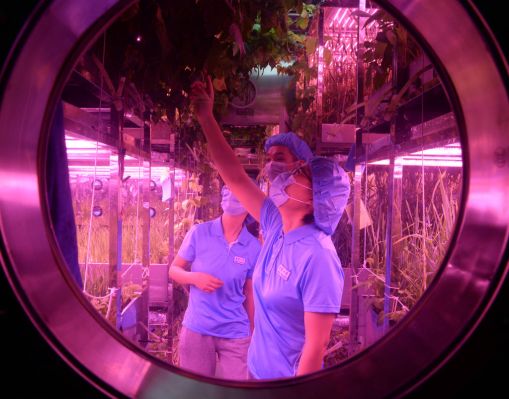Four volunteers at China’s top aeronautics university will live in a sealed laboratory for 200 days without any outside interaction as the country prepares to send its first manned mission to the moon. According to the People’s Daily (one of the Chinese Communist Party’s official newspapers), the group started their stint on Sunday in the 160-square-meter lab at the Beijing University of Aeronautics and Astronautics (Beihang University for short).
China became the third country, after the U.S. and Russia, to successfully complete a soft-landing on the moon in December 2013. The government is now working on a spacecraft capable of a manned lunar mission, with the goal of putting astronauts on the moon within the next 15 to 20 years.
While China insists that its lunar aspirations are in the spirit of peaceful collaborations with other countries, NASA has been banned by Congress since 2011 from collaborating with its Chinese counterparts because of security concerns. During his tenure as the head of NASA, however, former administrator Charles Bolden said the ban should be temporary to keep the U.S. from missing out on programs to send manned missions into space.
The recently approved U.S. military budget includes the creation of a new military branch dedicated to combat in space—but that doesn’t mean that the U.S. and China will be locked into a space race soon. The Air Force is trying to stop the proposal, arguing that it will take resources away from the current branches of the military.
Called the Yuegong-1 (its name means “moon palace”), the Beihang University lab is part of a year-long experiment that was launched on May 10 to test the reliability of its bioregenerative life support system (BLSS) and how it affects different crew members.
“As the longest one of its kind in the world, [the experiment] will help develop the technologies necessary for the guarantee of astronauts’ security and life quality in medium and long-term space explorations,” the university says on its English-language site. All volunteers are Beihang postgraduates.
Yuegong-1 has a living space and two modules for cultivating plants. To answer the obvious question, human waste will be treated through a bio-fermentation process. The current volunteers follow another group who just finished a 60-day stint. After they leave, a third batch of volunteers will enter the cabin for 105 days, bringing the experiment to its full 365 days.
